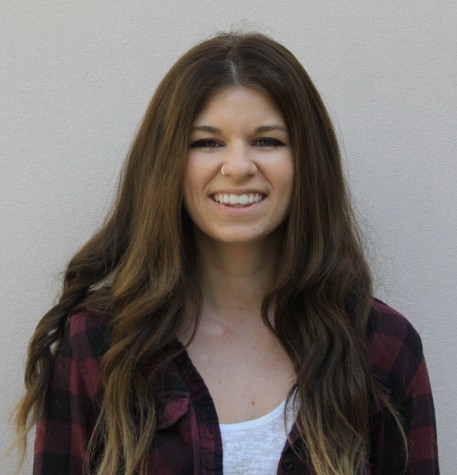“Once a Vaquero, always a Vaquero,” is a popular motto among sports teams at Glendale College, but the women’s softball team demonstrates the true meaning and value of that slogan with its David “Hawk” Wilder tournament, as well as with the badges on their uniforms in his memory.
The players that he led for 14 seasons affectionately knew Wilder as Coach Hawk.
In June 2013, GCC’s head softball coach died at the age of 70 of complications from polio that he developed in childhood.
“His health deteriorated so fast from the end of January to February,” said athletic director John Cicuto, that “there was nothing he could do; he tried everything he could.”
Polio is a disease that can lead to full or partial paralysis. The disease was virtually wiped out with the development of the Salk vaccine in the 1950s. However late in life many who contracted the disease when younger suffer from post-polio syndrome — a debilitating malady on its own.
As Hawk’s health worsened, he was still able to attend games with the aid of a motorized scooter. After a year, he needed assistance from others. Hawk was transported by a cart and people had to help carry him in and out of his vehicle.
“I thought about this three or four days ago,” said Cicuto. “His last season with us, they won conference and went to the Super Regionals in 2012.”
“At least he was able to experience that level of success. Not everyone gets to go to the super regionals.”
When his ability to attend games became more difficult, he made the decision to quit coaching and assistant coach Sal Pizzo was hired as head coach.
“It was the hardest thing for him to come in and tell me that he couldn’t coach anymore,” said Cicuto. “He couldn’t get around and he broke down [crying]. It was hard for him to give it up.”
Wilder was the last coach at Glendale to receive the Athletes with Characters & Ethics, or ACE, award in 2012.
“I think about it in my heart that he was the last one to receive that award, said sports information director Alex Leon, “and I know how important that was, because he really exemplified what that is about.”
Wilder was well known throughout the athletic community.
“He knew so many people. He would talk to them, be gracious, and as they walked away, he would look at me and say I have no idea who that was,” said Pizzo. “It wasn’t because he didn’t care about them; he just knew so many people.”
Coach Hawk scouted and recruited local young players throughout the San Fernando Valley. He met Pizzo at Cleveland High School when he was recruiting Pizzo’s daughter, Angela. When she graduated, he hired Pizzo and recruited his daughter to play for the Vaqueros.
“I was amazed to see the turnout for his memorial,” said Cicuto. “There were athletic directors from other community colleges attending. They held him in such high regard; it was saddening to see he had passed away.”
When he was a head coach, he created a tournament as a fundraiser for the softball team. This year the tournament was officially renamed in his honor.
“He definitely made a name for himself in the softball world,” softball player Leslie Zepeda said. “I think naming the game tournament after him is paying perfect homage because he had so much love for the game.”
Although the last few years of his life were hard for those who loved him to witness him sick, he made an everlasting mark.
Vaquero softball player Casandra Soto said, “I learned to go out on the field and make a statement, not just as an individual player, but as a team.”
This season, the girls wear a patch on their uniforms in his memory. The patch symbolizes his Native American heritage, which was very important to him, with a feather.
After he passed, there was a memorial held for him at Lulu’s Restaurant in Van Nuys, near where he lived.
“It was a wonderful outpouring of love for him,” said Leon.
Wilder was not married nor had any children; his only living relative is his sister, Jamie Wilder. She was presented with flowers on the debut of the Dave “Hawk” Wilder tournament. Pizzo and Cicuto described how honored and thankful she was to have this tournament named in the honor of her brother.
“It wasn’t just about softball,” said Cicuto. “He always came in with a smile on his face. You never saw him down, not even when he was in pain.”
“He would always ask other coaches how are they were doing or talk with them at the game,” said Cicuto. “He wasn’t a self-centered person any way. He cared about the entire sports program and that is what is hard to replace.”


